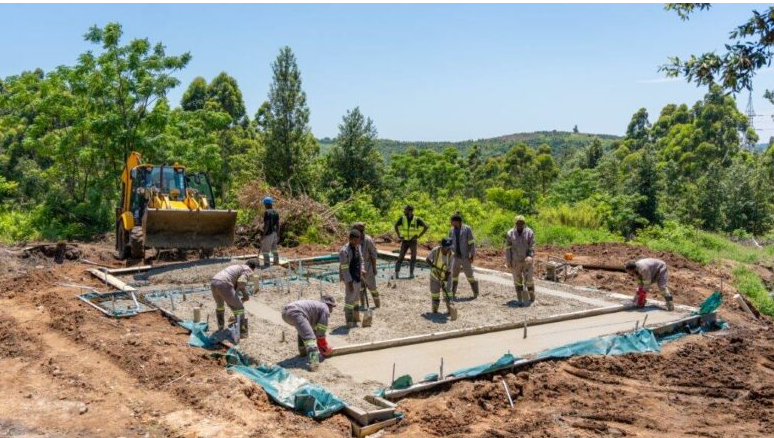ABET is more than just a numbers game

27-01-2023
Read : 397 times
The Content Engine
Source
By Lourens Jacobus
There is a lack of trust, respect and collaboration between stakeholders in the mining industry. This is evidenced by regular labour and community unrest and dissatisfaction due to poor working conditions which includes an abysmal health and safety track record in the industry. These factors hinder productivity and, therefore, the mining industry’s ability to compete effectively at a global level.
If undertaken correctly, adult basic education and training (ABET) can help stem the tide. Unfortunately, however; the role, purpose and importance of ABET is still misunderstood by many stakeholders of the South African mining industry.
Primarily, ABET is geared at facilitating effective communication in business. The top ten global companies consider effective communication as the most important strategic differentiator. Its importance to business success cannot be overstated.
Moreover, English is the official language of business in the country, although the vast majority of South Africans speak other languages at home. Despite this, most employees are expected to communicate efficiently in English as their second language to help businesses achieve their strategic objectives.
Government and employers – two members of the tripartite alliance – unanimously agreed on the importance of English literacy as a workplace skill. This is enshrined in the Mining Charter, which is intended to provide leadership direction with agreed and measurable targets for industry to achieve.
The mining industry’s response has been to launch large-scale ABET programmes that are merely aimed at ensuring wide participation in ABET with scant regard for the actual quality of training provided. I, therefore, refer to these programmes as “ABET sausage machines” – and rightly so.
Meanwhile, the Sector Education and Training Authorities are rewarding this lackluster approach to adult literacy training. This is by offering tax rebates and grants to industry stakeholders for their ABET programmes, further fueling sub-standard adult literacy training.
Due to this short-sighted approach, industry stakeholders have failed to make a substantial contribution towards developing the literacy skills needed for effective functioning of businesses.
These programmes have done very little in terms of preparing prospective candidates for the workplace. This is a major flaw which continues to contribute to the poor performance of the South African mining industry.
Literacy is not just vocational knowledge. It is a fundamental skill that empowers the individual to understand the contents and context of communication. Furthermore, it enables understanding and appreciation of the world as a set of inter-related activities, events, systems and processes. Literacy empowers individuals by facilitating realistic and logical reasoning; problem solving; as well as consequence identification and management. It nurtures self confidence that creates trust and respect, among other important life skills. Therefore, the objective should not be about just getting as many people as possible to participate in ABET to ensure compliance with the Mining Charter. Rather, the focus should be on providing quality adult literacy training that will improve the competence and proficiency of any employee profile.
Employee competence is the ultimate culmination of efficient knowledge acquisition; skills application; and desired behaviour. These three critical competence aspects are inter-related and dependent on one another. Therefore, limitations in one area will have adverse effects on the other two.
Effective ABET provides clear role clarity and understanding; proper objective setting; and associated management. It also contributes to a conducive, as well as healthy and safe working environment through improved relationships, teamwork and collaboration.
The importance of an appropriate and fit-for-purpose learning methodology and delivery model cannot be overstated. The ABET delivery model and associated results impact on learning retention and, ultimately, affect individuals’ competence levels.
It is time for the industry to act by:
Identifying the impact of employee competence profiles on meeting strategic communication objectives.
Identifying the gaps that restrict and obstruct effective communication. This includes designing and developing strategies to meet business strategic intent.
Evaluating current ABET strategies. This includes reviewing and adopting the critical success factors in terms of sustainable ABET delivery models and practices.
Jacobus is widely acknowledged as a training expert in the mining industry. He has authored numerous papers on the topic. These include the “Impact of new technology on artisan training” and “Implementing technology in education, training and development”. Among his many career highlights was optimising the training and development services and products for three mines within the Barberton area. Redesign, development and implementation of a suitable training strategy and optimised training philosophy were integral to the success of the project. Jacobus’ preferred ABET partner was Triple E
Training for this programme. He also served as Lonmin Group Education Training and Development Manager. In this capacity, Jacobus managed the entire spectrum and continuum of Human Resource Development spanning ABET through to Executive Development. He managed similar business interventions at both Anglo Platinum and Gold Fields, among many other highlights of his long and vibrant career in the mining industry.
For more information contact:
David Poggiolini
david@thecontentengine.co.za
Debbie Poggiolini
debbie@thecontentengine.co.za
Recent News
Here are recent news articles from the Building and Construction Industry.
Have you signed up for your free copy yet?









